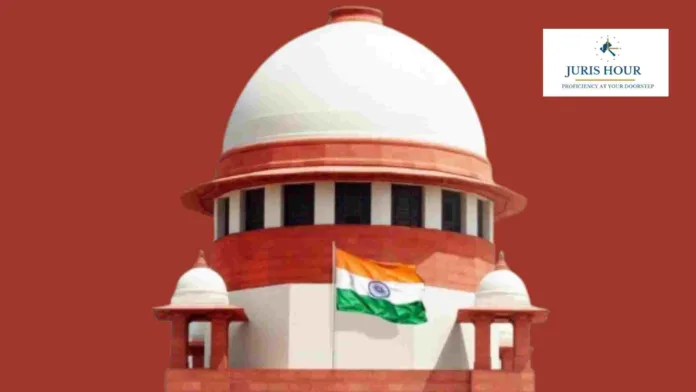The Supreme Court has held that documents and statements amount to ‘due compliance’ of provision mandating certificates for admissibility of electronic records in customs proceedings and the prescribed format is not mandatory.
The bench of Justice J.B.Pardiwala and Justice K.V. Viswanathan has observed that a particular certificate stricto senso in accordance with Section 138C(4) must necessarily be on record. The various documents on record in the form of record of proceedings and the statements recorded under Section 108 of the Customs Act, 1962 could be said to be due compliance of Section 138C(4)of the Customs Act, 1962.
The respondents/assessee were engaged in importing branded food items from abroad and selling them in Delhi and Mumbai. Based on intelligence, the Revenue conducted raids on their business and residential premises and found evidence suggesting that the importers had underpaid customs duty. The allegation was that they declared a lower RSP/MRP in the Bills of Entry compared to the actual sale price, leading to duty evasion.
A show cause notice dated 06.06.2016 demanded recovery of (a) ₹9,24,50,644/- from respondent no.1 and (b) ₹9,83,614/- from respondent no.2, along with interest, penalty, and confiscation of goods. The Adjudicating Authority confirmed the demand through its order dated 17.07.2017.
The importers appealed before the CESTAT, which allowed their appeals. The Tribunal held that the documents relied upon by the department, being sourced from electronic devices, were inadmissible in the absence of a proper certificate under Section 138C(4) of the Customs Act, 1962. Since this key requirement was not met, the Tribunal did not examine other arguments and allowed the appeals on this ground alone.
The appeals under Section 130E of the Customs Act, 1962 were filed by the department against a judgment of the CESTAT, New Delhi dated 17.04.2018. The Tribunal had allowed the importers’ appeals and set aside the penalty imposed by the Adjudicating Authority.
The department contended that the Tribunal committed a serious error in allowing the appeals filed by the assessee on the ground of non-compliance of Section 138C(4) of the Act, 1962. She would submit that there is cogent and sufficient evidence on record to indicate compliance of Section 138C(4) of the Act, 1962 in substance. The documents collected from the electronic devices owned by the assessees at the time of search have been duly acknowledged by the assessees in their statements recorded under Section 108 of the Act, 1962.
The assessee contended that no error, not to speak of any error of law, could be said to have been committed by the Tribunal in allowing the appeals on the ground of non-compliance of the mandatory provision of Section 138C(4) of the Act, 1962. The recording of statements under Section 108 of the Act, 1962 containing acknowledgment of documents being collected from the electronic devices of the assessees cannot be termed as due compliance of Section 138C(4) of the Customs Act, 1962.
The court noted that though Section 65B4 is mandatory, yet it would all depend on the facts of each case, how the same could be said to have been duly complied with.
The Court said that the assessee had done everything possible to obtain the necessary certificate which was to be given by a third party over whom the respondents therein had no control and, in such circumstances, must be relieved of the mandatory obligation contained in the said subsection.
The court held that the contents of such statements recorded under Section 108 of the Act, 1962 were not disputed. This, of course, would be relevant only insofar as determining whether there has been due compliance of Section 138C(4) of the Act, 1962 is concerned. The evidentiary value of such Section 108 statements in any other proceedings, if any would have to be considered in accordance with law, including the compliance of Section 138B of the Act, 1962.
The court restored the appeals filed by the assessees before the Tribunal are ordered to be restored to its original file and to be reheard by the Tribunal on grounds other than Section 138C(4) of the Act, 1962. It is needless to clarify that on remand the Tribunal shall rehear the entire appeals on their own merits without being influenced in any manner by any of the observations made by this Court. The observations are confined only on the issue of Section 138C(4) of the Act, 1962.
Case Details
Case Title: Additional Director General Adjudication Versus Suresh Kumar And Co. Impex Pvt. Ltd.
Case No.: CIVIL APPEAL NOS.11339-11342 OF 2018
Date: 20th August, 2025
Read More: ED Raids in Bhubaneswar Unearth Luxury Cars, Jewellery in Rs. 7-Crore Bank Fraud Probe

